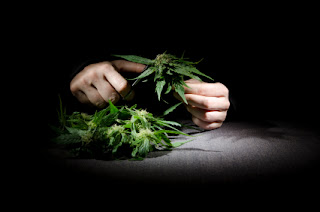Your
family member has finally agreed to go to rehab, whether you guys held an
intervention or they decided it on their own they are finally going to get
help. Now it is up to them to work hard to get better but you can also help
them get sober by supporting them and here are some easy ways to do so:
Don’t Enable
Them
Accept
the fact that your family member is dealing with a serious problem but don’t
enable them. Stop making excuses and covering for them, giving them mone, a
place to live etc. Living in denial will only contribute to the problem and
prevent them from getting better. It does not do anyone any good to turn a
blind eye to a drug problem.
Insist
that the enroll in treatment and get help.
Reassure Them
Once Treatment Starts
Your
family member will probably be scared or nervous about going to rehab and it
isn’t uncommon of someone who checks into rehab to want to or try to check
right back out and if they’re over eighteen, they can do that without someone
permission. That all being said,
reassure them, let them know that you’re here for them.
Let
them know how proud you are of them for seeking help in the first place. Inform
them about how the program works and answer any questions they may have.
Support After
Completion
When
your family member graduates from the rehab program it is a very exciting time.
It’s also a very delicate period in which old triggers and cravings could threaten
their sobriety. Talk to them, or if they don’t feel comfortable talking to you
have them talk to one of their counselors from the rehab or someone they feel
comfortable talking to them.
You
should also speak to the counselors about the plans after treatment and do what
you can to support your loved one with these. For example if they have a goal
of getting a job after treatment, you could take them for interviews.
Be Realistic
With The Situation
Understand
that our addicted family member might have a bad day every now again. Addiction
is a problem that can be completely solved but something may cause him or her
stress that could lead to some mis-emotion. Keep supporting them and try to get
them out of any areas that could potentially cause a slip up.
This
could mean moving, get them out of the area. Now I know this isn’t always
financially possible but if it’s an option it’d be smart to do it. This could
take away some of their old triggers and they wouldn’t have their old dealers
or junky friends nearby. Sure they could get a new dealer wherever they go but changing
their environment lowers their triggers and that lowers the chances of them
wanting to get a new dealer anyway.
A
family member who is addicted needs love and support from family and friends to
do well after treatment no matter what type of program they’ve enrolled in.
Make sure that your loved one is doing okay and watch for possible indicators
that there could be a problem.

















